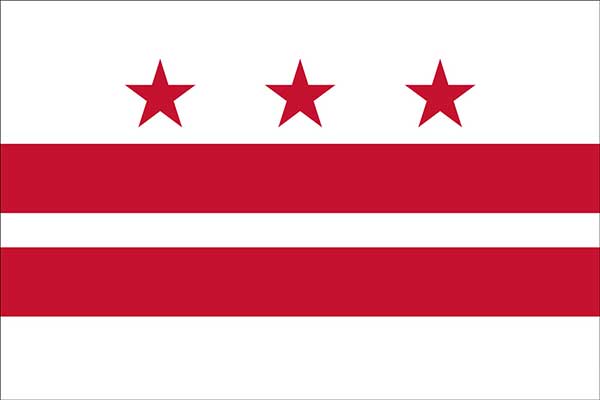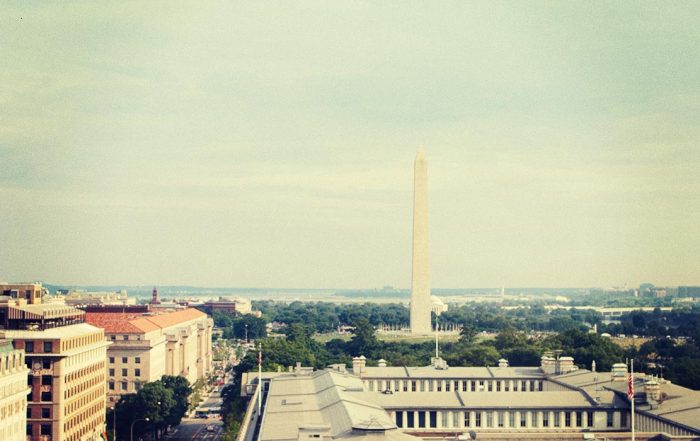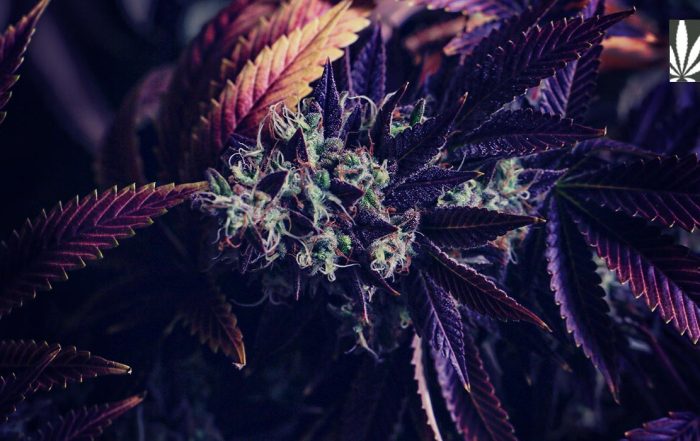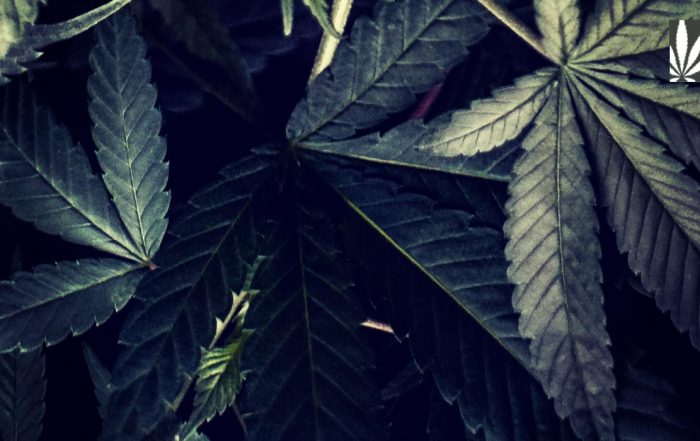District of Columbia Marijuana Laws
Medical marijuana and recreational use is legal. But, there’s a catch: only registered medical marijuana patients can legally purchase it. The general public can possess small amounts of cannabis without charge, and patients are allowed up to two ounces. Adults are legally permitted to cultivate 6 plants at home.

LATEST NEWS
Latest News
LAW BREAKDOWN
Cannabis is legal for both medical and recreational use in Washington, D.C. However, despite being able to legally possess and cultivate small amounts of cannabis, buying or selling it remains illegal.
Possession
Possession of up to 2 ounces of marijuana is allowed in the District. The law also permits gifting of up to 1 ounce as long as nothing else of value changes hands. Possession of more than 2 ounces, on the other hand, is a misdemeanor punishable by up to 6 months in jail and $1,000 in fines.
| Offense | Penalty | Incarceration | Max. Fine |
|---|---|---|---|
| 2 oz or less* | None | None | $ 0 |
| 6 plants or less* | None | None | $ 0 |
| More than 2 oz | Misdemeanor | 6 months | $ 1,000 |
| *Initiative 71, which took effect on 2/26/15, permits adults 21 years of age or older to possess up to two ounces of marijuana in one’s primary residence without penalty. Transfer without payment (but not sell) up to one ounce of marijuana to another person 21 years of age or older is also permitted. Provided that all persons residing within a single house or single rental unit may not grow more than twelve cannabis plants, with six or fewer being mature, flowering plants. | |||
Scroll to see the rest of the table.
Cultivation, Sale, Distribution, and Possession with Intent
District residents may legally grow up to 6 plants at home, with no more than 3 mature at any time. The law also defines a limit of 12 plants, with no more than 6 mature at once, in a single accommodation unit, regardless of the number of people living there.
Cultivation, sale, distribution, and possession with intent to distribute less than half a pound all carry a maximum penalty of 6 months in jail and $1,000 in fines on a first offense. The maximum penalty increases to 2 years in prison and $5,000 in fines on a subsequent conviction.
Cultivation, sale, distribution, and possession with intent to distribute any amount of marijuana greater than half a pound is punishable by up to 5 years in prison and a maximum fine of $50,000. Additional penalties are issued for any such offense committed by an adult over 21 that involves a child or teenager.
Cultivation, sale, distribution, and possession with intent to distribute all carry double penalties when committed within 1,000 feet of a day care center, elementary school, secondary school, vocational school, junior college, college, university, public swimming pool, playground, video arcade, youth recreational center or public library. The same is true of offenses committed on or near a public housing project.
| Offense | Penalty | Incarceration | Max. Fine |
|---|---|---|---|
| 6 plants or less* | None | None | $ 0 |
| 1/2 lb or less (first offense) | Not Classified | 6 months | $ 1,000 |
| 1/2 lb or less (subsequent offense) | Not Classified | 2 years | $ 5,000 |
| Any amount | Not Classified | 5 years | $ 50,000 |
| *Initiative 71, which took effect on 2/26/15, permits adults 21 years of age or older to cultivate no more than six plants (with three or fewer mature at any one time) in one’s primary residence without penalty. Provided that all persons residing within a single house or single rental unit may not grow more than twelve cannabis plants, with six or fewer being mature, flowering plants. | |||
| Involving a minor by a person over 21 brings additional penalty and/or fine. | |||
| Within 1000 feet of an appropriately identified public or private day care center, elementary school, vocational school, secondary school, junior college, college, or university, or any public swimming pool, playground, video arcade, youth center, or public library, or in and around public housing may bring a doubled penalty. | |||
Scroll to see the rest of the table.
Concentrates
DC’s marijuana law does not specifically allow the possession of marijuana concentrates. Hashish is still considered a controlled substance, possession of which is subject to a potential 180 days in jail and a fine of up to $100. Manufacture of these substances is punishable by up to 5 years in prison and $50,000 in fines.
| Offense | Penalty | Incarceration | Max. Fine |
|---|---|---|---|
| Possession | N/A | 180 days | $ 1,000 |
| Manufacture | N/A | 5 years | $ 50,000 |
Scroll to see the rest of the table.
Paraphernalia
Possession and sale of cannabis paraphernalia are both legal for any person aged 21 or over in Washington, D.C.
Possession and use by a minor. Any possession of marijuana paraphernalia by a person under 21 years is subject to a penalty of up to 30 days in jail, and fines of up to $100.
Sale and distribution. Sale of paraphernalia is legal in D.C. Any person acting in violation of selling laws can be punished by up to 6 months in jail, $1,000 in fines, or both. For a subsequent offense, the penalty is up to 2 years in prison, a maximum $5,000 fine, or both.
| Offense | Penalty | Incarceration | Max. Fine |
|---|---|---|---|
| Possession or sale of paraphernalia 21 years and up | None | None | $ 0 |
| Possession of paraphernalia under 21 years | None | 30 days | $ 100 |
| Sale of paraphernalia | None | 6 months | $ 1,000 |
| Sale of paraphernalia subsequent offense | None | 2 years | $ 5,000 |
Scroll to see the rest of the table.
Forfeiture
All substances, raw materials, products, equipment, property, vehicles, research products, paraphernalia, money and other assets can be seized.
Medical Marijuana
MEDICAL MARIJUANA
The “Legalization of Marijuana for Medical Treatment Amendment Act of 2010” was signed into law in 2010, allowing qualifying patients access to marijuana. The program has since been amended allowing physicians to recommend the medicinal use of marijuana for any condition they feel will benefit from its use.
QUALIFYING CONDITIONS:
Any debilitating condition as recommended by a DC-licensed physician
PATIENT POSSESSION LIMITS:
Two ounces
HOME CULTIVATION:
No
STATE-LICENSED DISPENSARIES:
Yes. Medical dispensaries are permitted to grow up to 500 marijuana plants on site at any one time. Dispensaries can be operated by both non-profit and for-profit organizations.
CAREGIVERS:
Yes. A qualifying patient may designate a person as a caregiver authorized to possess, obtain from a dispensary, and help to administer medical marijuana. The caregiver must be at least 18 years of age and must be registered with the Department of Health as the patient’s dedicated caregiver.
RECIPROCITY:
Yes
District of Columbia Marijuana Attorneys
The following DC lawyers are actively involved in the practice of cannabis law:








